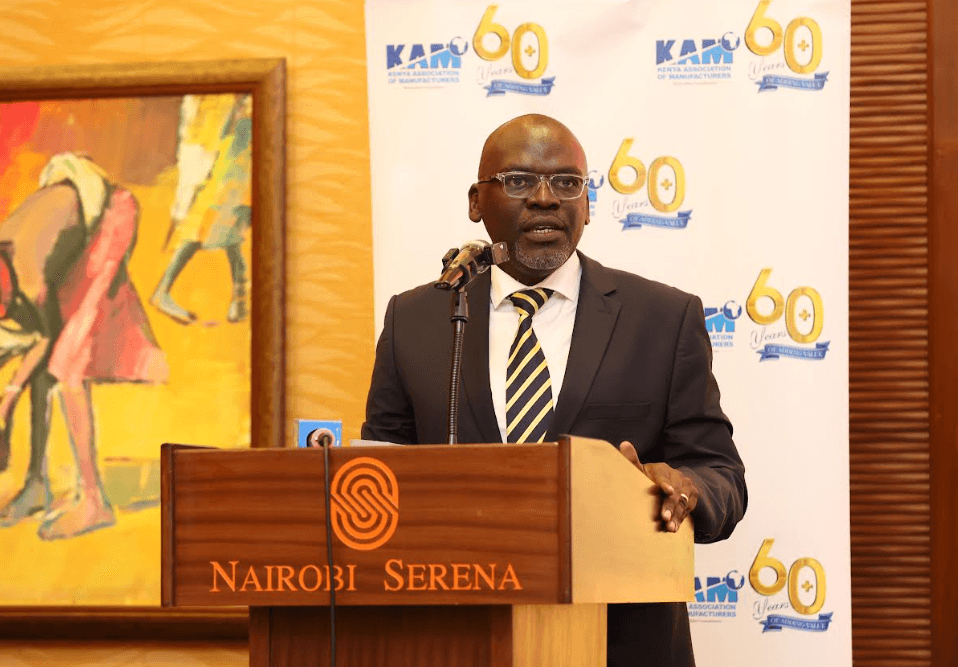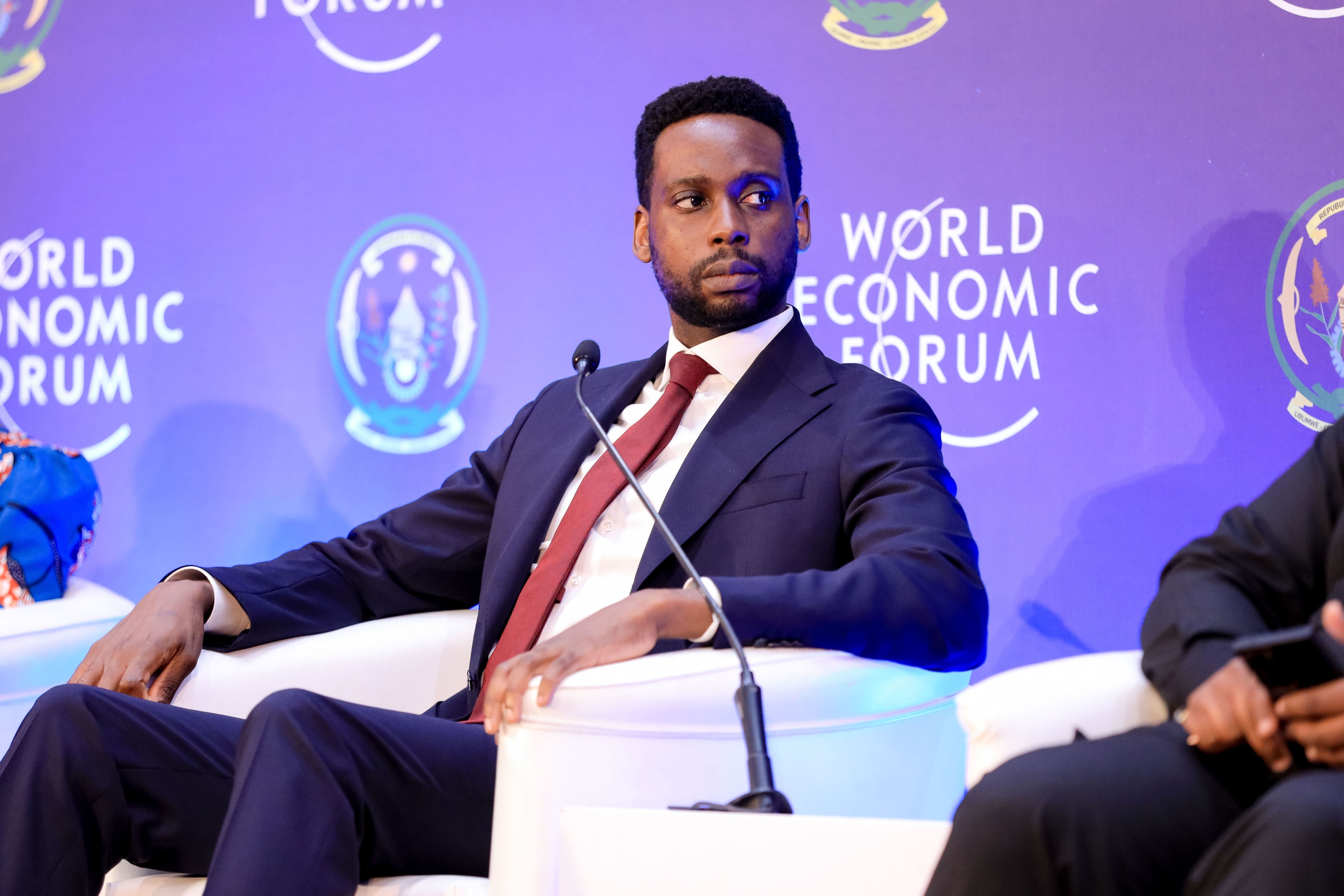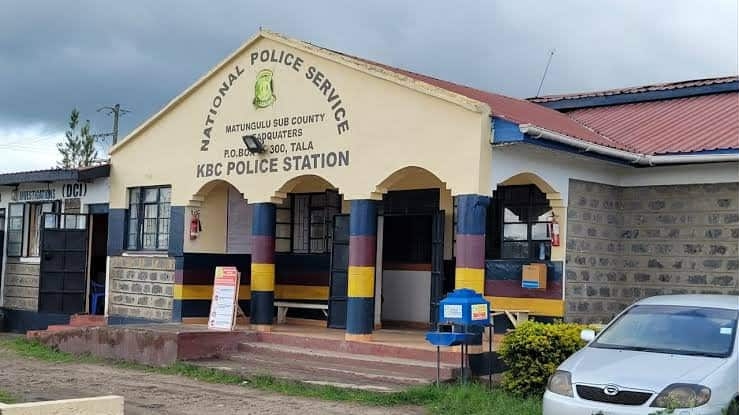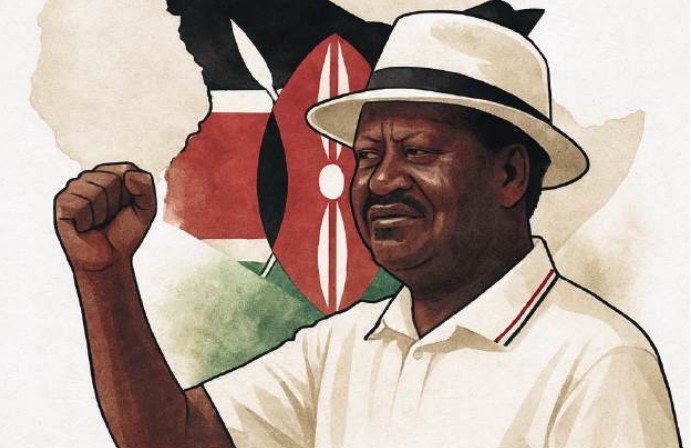Dominic Ooko Otieno is now a free man after serving his jail term at Kwale GK Prison, famously known as Migingo, in Matuga.
However, he lost everything, including the love of his life to a close friend.
It will take him time to heal from his pain, but life must continue.
In prison, the 30-year-old man battled depression and more than once contemplated suicide.
Everyone he knew had deserted him and he was all alone left to rot in jail.
Now he can breathe fresh air, feel the sun on his skin and is free from handcuffs.
"Life in prison is not a walk in the park. You are on 24-hour guard. Sometimes you barely see the sunlight. It is a life of sadness and tears," he said.
Otieno was jailed for a robbery with violence.
He was just living a normal life until one night in 2019 when the wheels of fortune turned against him.
He was operating as a boda boda rider and tried to rescue a colleague involved in a road accident near Tandoori Hotel in Diani.
What he thought was a heroic act changed his life forever and shuttered his dreams.
"A private vehicle ran over one of our colleagues, and the person was stuck beneath the car. Instead of the driver pulling over, he wanted to drive over him. That was when I rushed to the scene, broke the car's window and slapped the driver," he said.
Otieno said things happened so quickly he had no idea what awaited him next.
The driver went to the police to report that he had assaulted, and robbed of two phones and Sh82, 000.
Police launched a manhunt, with Otieno as the main suspect.
When Otieno realised he was being pursued by police, he panicked and ran to Tanzania where he stayed for seven days.
He later returned home, but it was always life on the run, living on the streets and sometimes being forced to feed on leftovers from the garbage.
Missing the warmth of his bed and the company of his wife, Otieno decided to go back home.
He consoled himself that he did nothing wrong and the only crime he committed was saving a life, which he doesn't regret.
A month later, the long arm of the law finally caught up with Otieno. He was arrested but not given the reasons until he was presented at the Kwale law court where the charges were read.
"I could feel my legs weakening, and a light sweat coming out when the magistrate read the charges. I knew it was the end of me," he said.
Otieno denied the charges and was given a bond of Sh200, 000 but couldn't bail himself out for lacking money.
After two years in remand, his wife and other family members stopped visiting and he had no one but a friend, who is believed to have later cheated him with his wife.
"Stories came that my best friend, who was pretending to help me, was sleeping with my wife," he said.
Otieno said he developed a lot of stress that escalated into depression.
He had no appetite and always isolated himself. He was lost in his own world.
He started bringing the pieces together and related it to the sudden change in the behaviour of his wife.
A time came his ever-loving wife ignored his calls and told him he was stubborn.
Otieno said he was completely shocked. Deep down he knew he was losing the battle.
His friend caused more pain by telling him negative stories about his wife back home.
Then came the Covid-19 pandemic and chances of Otieno getting back his freedom reduced since hearing of cases stopped for almost a year.
It stressed him more. Other inmates considered him crazy for he was often talking to himself.
After three years in remand, Otieno was found guilty and sentenced to six years in prison.
Luckily, the court reduced the sentence to a year. It deducted the three he had already served and two years were given a remission.
Otieno walked to freedom early this year. But he found out everyone had moved on without him.
His story is not much different from that of Ali Mzungu who was accused of defilement and arrested in March 2022.
The past one year has been a series of hectic events as he was transferred from one remand prison to the other.
“I served in Migingo prison then was taken to Kamiti and brought back to Migingo and each prison has its own challenges,” he said.
The 27-year-old who had ambitions of marrying saw his girlfriend marry someone else.
“After the defilement case, my girlfriend who I was planning to get married to, left me and the community perceived me as a monster,” he said.
Mzungu heard stories that his girlfriend was being married somewhere else. It broke him.
He said people should never take freedom for granted. Staring at the same people, same walls and eating the same meals every day is tiresome and depressing.
Before the arrest, Mzungu was a teacher in Kwale. He is the firstborn and the family depended on him for everything.
He said he suffered a serious mental health illness because he had lost hope.
“I had colleagues facing similar cases and you heard that some had been jailed for life, others for more than 30 years and it broke my morale and I felt like life was over,” he said.
He said the fact that he was not guilty hurt him more and sometimes he questioned God for taking him through such an experience.
Mzungu said he attempted suicide several times but life gave him another chance.
On July 27, 2023, Mzungu was acquitted for lack of evidence and he walked free.
Last year, the non-governmental organisation Samba Sport Youth Agenda launched a mental health awareness and empowerment program in prisons called the Kumekucha Quest.
It targeted both inmates and prison officers to help them deal with stress and trauma.
Due to Otieno's mental health, one of the senior prison officers recommended him to join and it was when he started to regain consciousness.
He said the programme supported him in overcoming stress and defending himself during the last months of his case.
"I thank God, otherwise I would have rotted in prison. Imagine doing a case with a broken mind," he said.
Otieno said he also went back to God and became a fully devoted Christian.
He has gone back to the boda boda business and has forgiven everyone who hurt him.
Mzungu was also among the beneficiaries of the programme. A few months after he attended the mental awareness sessions, he experienced a positive change and eventually overcame his depression.
The 27-year-old man developed confidence and self-awareness that helped him stand strong against his case.
“Let me tell you, it doesn’t matter how much you prepare when presented before the court you forget everything, but thanks to this programme it provided me with all I needed,” he said.
Mzungu is currently doing business within Kwale through the support of Samba Sports Youth Agenda.
Kumekucha Quest project officer Mwanaisha Kuwania said the programme has so far benefited over 2,000 youths in Kwale including police officers, inmates and young mothers.
Most of them had once given up on life and were going through depression and drug abuse, and others had dropped out of school and some were victims of teen pregnancies.
Kuwania said the programme targets youth, teenagers and children to inspire self-awareness, self-acceptance, hope, community care and relational well-being.
Kuwania said a large number of youth have changed and embraced positive and healthy lifestyles since they enrolled in the programme.
She said they sourced the youth from maskanis (street bases), prisons and several schools in Mombasa and Kwale counties. In Kwale the youth came from Waa, Tiwi, Ukunda and Diani
Kuwania said the prisons are normally widely perceived to be centres of desperation, hopelessness, emotions and vengeance.
Through the programme they have transformed 30 prison officers and 43 inmates from Kwale GOK Prison who adopted a new positive attitude towards their day-to-day affairs
Samba Sports Youth Agenda CEO Mohammed Ali Mwachausa said the programme has helped change the community's perception towards mental health.
He said the majority of the community used to believe depression was caused by witchcraft and curses.
He said youth especially in Waa, Kombani, Maganya and Denyenye were in constant vengeance that caused a lot of bloodshed and insecurity.
Mwachausa said the Kumeckucha Quest reversed the trend and provided safe spaces for youth and community to resolve conflicts peacefully.
“Our youth have learned new positive ways of settling their differences unlike before when they believed in violence,” he said.

















